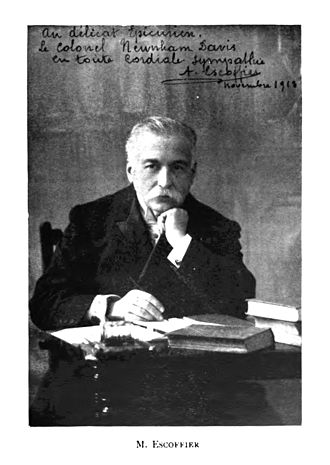It is impossible to begin to teach people how to cook without referencing something or someone from the past, whether it be a technique, a recipe or enlightened culinary disciple. Food, cuisine, gastronomy, they are all a historical lineage, stories being constantly rewritten and defined, with their feet firmly planted in the past.
Here at The Chopping Block, we often find ourselves recreating and instructing our clients on past “classics” without giving much reference to the “where’s and how’s” of how things became to be. Food and its development derived out of necessity - hunters and gatherers switching to an agricultural farming model to create a more constant source of food. As society and understanding grew, so too did gastronomy and the appreciation of the finer things in life.
While the development of civilization allowed more people to specialize in specific trades, it was the creation of wealth and nobility that created the modern-day chef. As in all blue-collar trades, the rich would hire professionals to show off their wealth and honor, throwing large feasts and parties for their subjects - creating the divide between peasantry and professional cooking. Countries that have had a longstanding and stable aristocratic society developed the most refined dishes because they had the money and the means to fund them.
France was one of the leaders in this field, having nobles and upper-class members using food as status symbols. Before the 17th century, most dishes from different monarchies around Europe grossly resembled each other with the use of expensive ingredients from the new worlds. Sugar, cinnamon and black pepper dominated the palate, usually to make up for the smell of rotting meats (due to lack of refrigeration).
By the mid-17th century, French chefs/writers such as Francois Pierre La Varenne, Francois Massialot, and Nicolas de Bonnefons began to change the face of the old ways, emphasizing more on simple preparations and use of seasonings, allowing the individual foods to shine. They developed and codified basic culinary skills such as mayonnaise and roux. It wasn’t until the French revolution in the 19th century that food began to change again. Antonin Carême became famous by cooking for the world’s rich and elite. As the “chef of kings” Carême created the multi-volume book called L’Art de La Cuisine Francaise aux XIX Siecle where he created the notion of food being both art and science. Carême valued elaborate presentations, good service, and heavy/rich ingredients - leading to the development of La Grande or Haute Cuisine. With numerous chefs out of work with the abolishment of aristocracy during the French revolution, this also became the time of the creation of restaurants.
A few decades later, building on all of these master works, a true visionary of gastronomy would make his mark upon the world. The one chef everyone should know is George-Auguste Escoffier.

George-Auguste Escoffier was born on October 28th, 1846 in the town of Villeneuve-Loubet near Nice, France, where he would eventually begin his cooking apprenticeship at the age of 12. After spending seven years in the army as a cook during the Franco-Prussian War (1870) he would open his own restaurant in Cannes called Le Faisan D’Or. By 1884, he had met up Cesar Ritz, who would become the “king of hoteliers” opening some of the finest hotels in the world, and began to take over the kitchens of Ritz’s hotel in the French Riviera. Escoffier’s claim to fame came in 1890 when he and Cesar Ritz accepted the offer of Richard D’Oyly Carte to head up his new hotel in London - The Savoy.
Image courtesy of Wikipedia
As the successor to Carême, Escoffier systematized French cooking in a way that had never been done before with manual Le Guide Culinaire, published in 1903. It became known as the bible of French cuisine, having codified the works of the masters before him into one concise book - even listing some of the first à la carte menus.
While I understand that Escoffier wasn’t the food revolutionary that rocked the world of gastronomy like some modern-day chefs, he was the man who took 200 years of study and systemized it, giving a future into the modern world. Escoffier gave the world a base of understanding and knowledge to move forward, a set of techniques that translate through culture and language. If you happen to go to culinary schools in this day and age, you learn the basics as created and systemized by the “Emperor of Chefs”.
At The Chopping Block, we offer many classes in the classics of French cuisine (French Bistro, Simple French Food, French Sauce Workshop, etc.), however I hope that all our future students take the time to read this and understand that we are but re-creators of ideas and knowledge that is far beyond us. It is important to understand history to know how to move forward. See you all in class!
P.S. Julia Child is my spirit animal. Just needed to be said...
